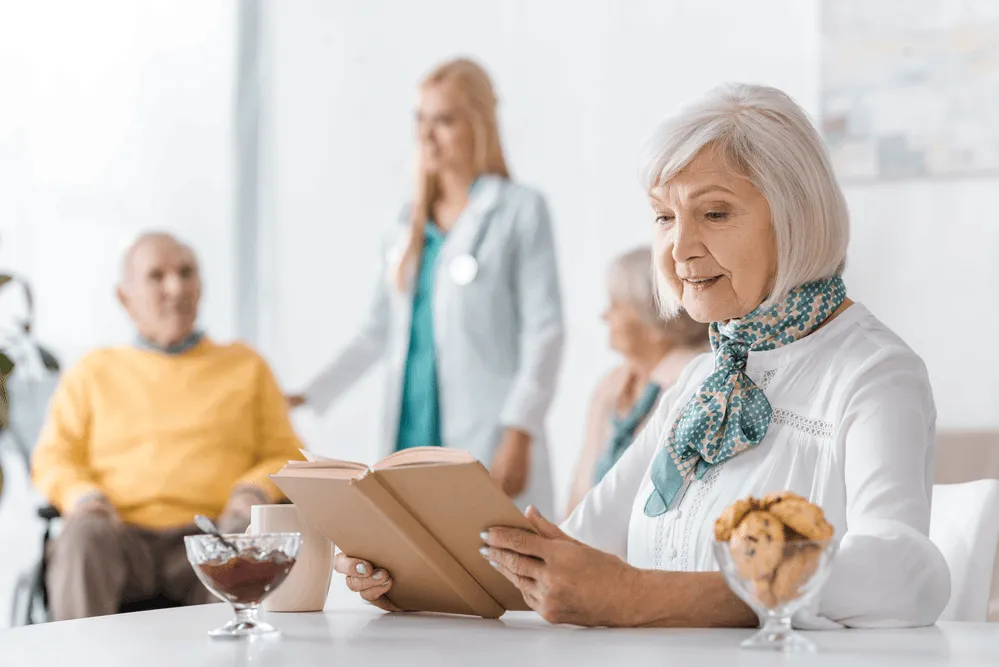Are you looking for a new role that’s both challenging and satisfying? If so, home health care could be the right industry for you. As a New York home health aide, you’re in charge of helping elderly or disabled people remain in their own homes. This work is varied, there are plenty of opportunities for career progression, and the hours are flexible. In Manhattan, Brooklyn, Queens, or the Bronx, increasing numbers of home health care jobs are available.
The Role of a Home Health Aide in Brooklyn, Manhattan, Queens, and The Bronx: Duties and Responsibilities
Many people who are no longer able to live independently want to avoid going to a care home. In their own homes, they can preserve a sense of familiarity, remain connected with their social network, and age or recover with dignity.
Home health aides bridge the gap between dependence and independence. By assisting elderly or disabled people with everyday tasks, making sure they take their medication correctly, and acting as companions, they help their patients safely stay in their familiar environments.
Helping Patients with the Daily Activities of Living
Home health aides assist individuals with the Activities of Daily Living: fundamental tasks that need to be performed daily to ensure the patients’ health and safety. These activities include but are not limited to bathing, dressing, grooming, and mobility. For many patients, performing these tasks independently is impossible due to physical limitations or health conditions.
Bathing, for instance, might pose difficulties for those with mobility issues, and dressing may be a struggle for those dealing with arthritis. Home health aides offer compassionate assistance to ensure these essential activities are accomplished with dignity and ease. By providing physical aid and emotional support, these professionals help patients to remain in their own homes, even if their families are busy or live far away.
Keeping Patients Safe in Their Homes
Often, the home health aide is the patient’s most regular visitor. They see the elderly or disabled person weekly or even daily, so they’re in a good position to monitor the home environment for potential hazards. Qualified and experienced aides can identify unsafe conditions, such as slippery floors, uneven surfaces, or clutter. They then let their superiors and the patient’s family know, so preventive measures can be taken.
An aide may recommend home improvements, such as installing handrails, grab bars, or non-slip mats in strategic areas. Additionally, aides may suggest modifications like ramps for accessibility or rearranging furniture to minimize obstacles.
Administering Medication and Performing Basic Health Services
For individuals with cognitive impairments, such assistance helps them to maintain a consistent and accurate medication routine. Home health aides can also help patients monitor their vital signs, assist with self-weighing, and perform basic wound care. These services benefit those with chronic illnesses and individuals recovering from surgeries or dealing with mobility limitations.
Monitoring the Mental Health of Patients
Signs such as social withdrawal, sudden changes in mood, sleep disturbances, or difficulty concentrating can be red flags. Aides act as observant companions, encouraging open communication and providing emotional support. If they make see concerning things, they collaborate with the patient’s medical team and family. They may alert the patient’s doctor, share insights with family members, or coordinate with mental health professionals.
Taking Patients to Their Appointments
Looking After a Wide Range of People
Learning the Necessary Skills
If you’d like to become a home health aide in NYC, you first have to complete a training program. This typically lasts between one and two months and consists of both theoretical and practical modules. You’ll learn about health and safety, common chronic conditions, preparing balanced meals, dealing with a wide range of patients, and collaborating with other medical professionals.
Although there aren’t any specific prerequisites, most home health aides are in good physical shape because the job sometimes involves heavy lifting. They also have good social and organizational skills and are willing to interact with a wide range of people. Some home health aides speak a second language, such as Spanish or Chinese, so they can work with more diverse people.
Finding Home Health Care Jobs in New York
Once you’re qualified, you can start working as a home health aide right away. The best way to begin is to reach out to an agency that already has clients in your preferred area. At Parent Care, we offer both full-time and part-time jobs, and we provide all our aides with in-house training and support. We also coordinate care and encourage our aides to communicate with their patients’ doctors and therapists to provide comprehensive care.
The average home health aide salary is currently between $18 and $19. However, you can earn significantly more if you regularly complete continued education programs and specialize in a field such as pediatric or dementia care. A good agency like Parent Care will offer in-house training opportunities and help you to plan your career.
In New York, numerous home health care jobs are available due to the growing elderly population. Many people with cognitive or mobility issues would rather stay in their own homes than move to a care home, so they require home health care. Give us a call at Parent Care to find out about open positions in Manhattan, Brooklyn, Queens, or the Bronx.



